How do they cope with climate doom?
“The era of global warming has ended. The era of global boiling has arrived,” said the current secretary-general of the United Nations, António Guterres, in July of 2023. Terms like this, alarming and daunting, have always been present on news related to climate change. This has created a trend where the media tends to focus more on the “doom” side of things, which takes an undeniable toll on our mental health.
According to the Climate Atlas of Canada, more and more Canadians are “struggling to stay hopeful about the uncertain and changing future.” While staying informed about the devastating effects of climate change is necessary to fight for a better environment, constantly hearing bad news can elevate levels of stress, anxiety, and depression, and ultimately cause climate doom.
Climate doom is the idea that our current rising climate is beyond repair; an intense sense of hopelessness for the future. The Martlet asked UVic students: What do you do when you are experiencing climate doom?
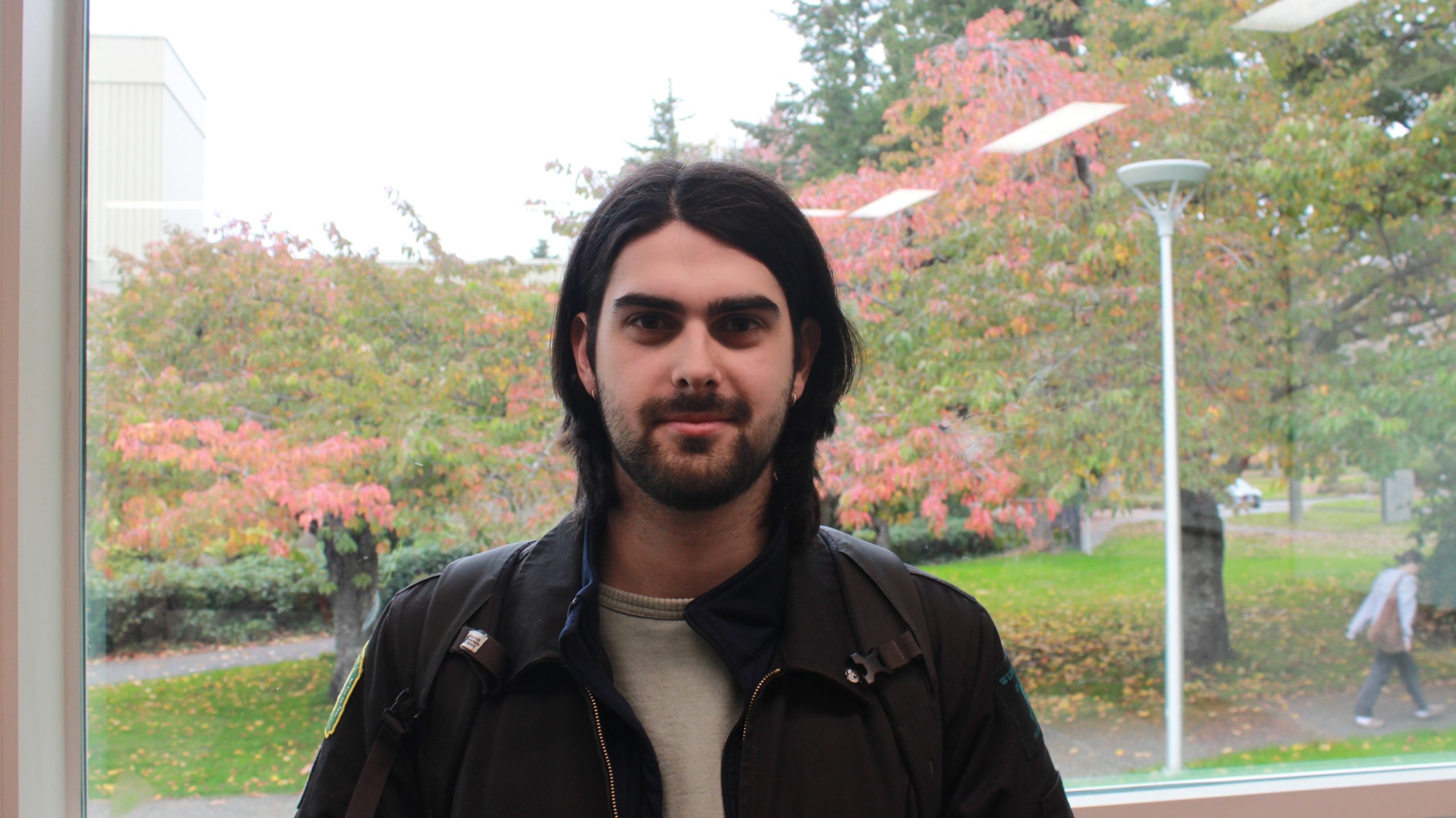
Wesley, photo by Cooper Anderson
“Doom-scroll [and] drink heavily,” said Wesley, a fine arts student at UVic. “Sometimes I’ll go for a nice walk to remind myself that the sun exists and that all hope is not lost.”
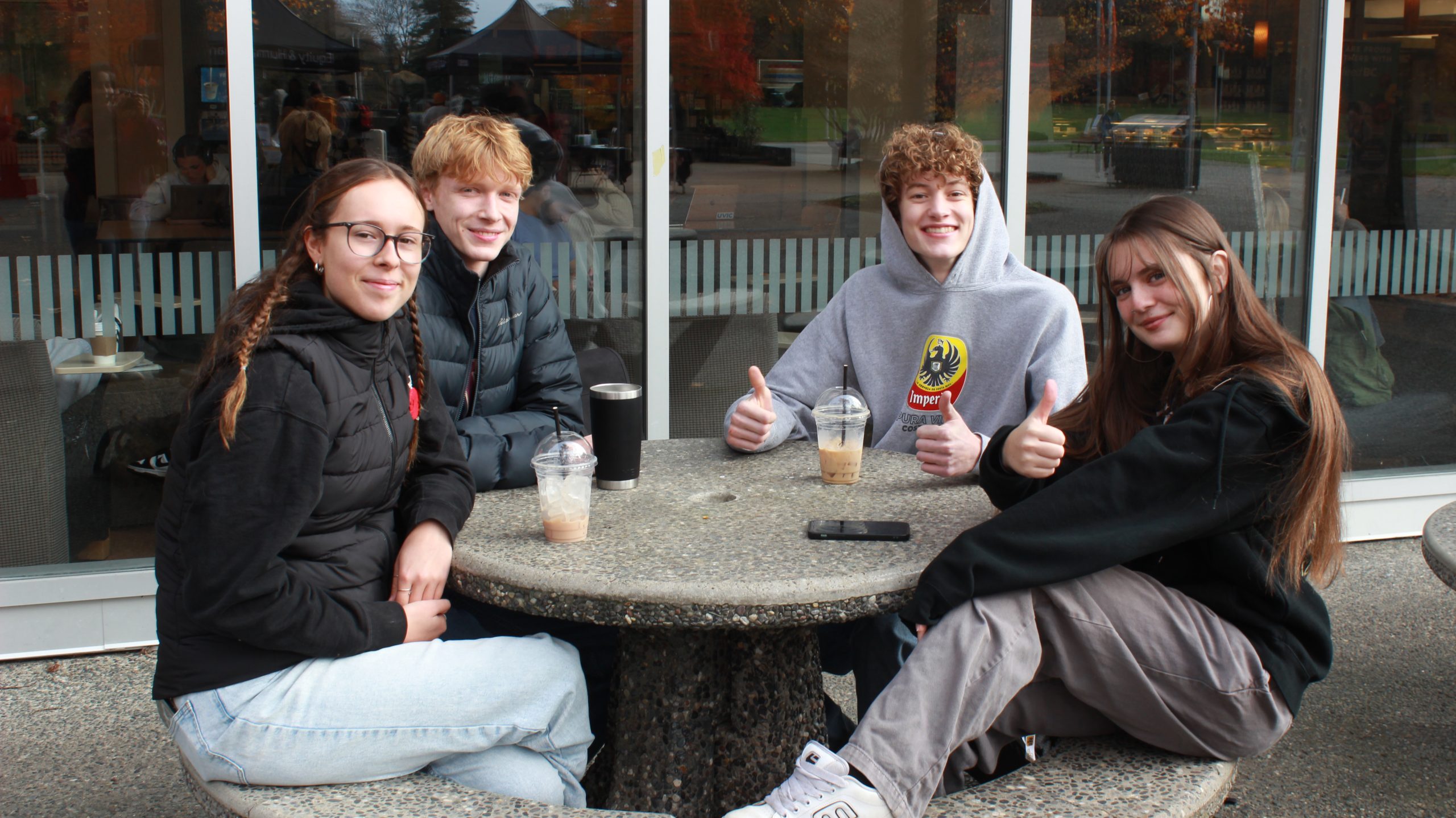
Zoe, Rowan, Fred, and Ella, photo by Cooper Anderson
Zoe, Rowan, Fred, and Ella, a group of four students eating lunch outside the BiblioCafé, echoed Wesley’s answer, saying they also cope by “doom-scrolling on TikTok” or “drinking,” respectively.
Other students said that climate doom is a mindset they prefer to avoid.
“I’ve spent a lot of time thinking about climate change, and my research is related to climate change, but nowadays I don’t really think about it in a ‘doom’ way,” said a student named Camille.
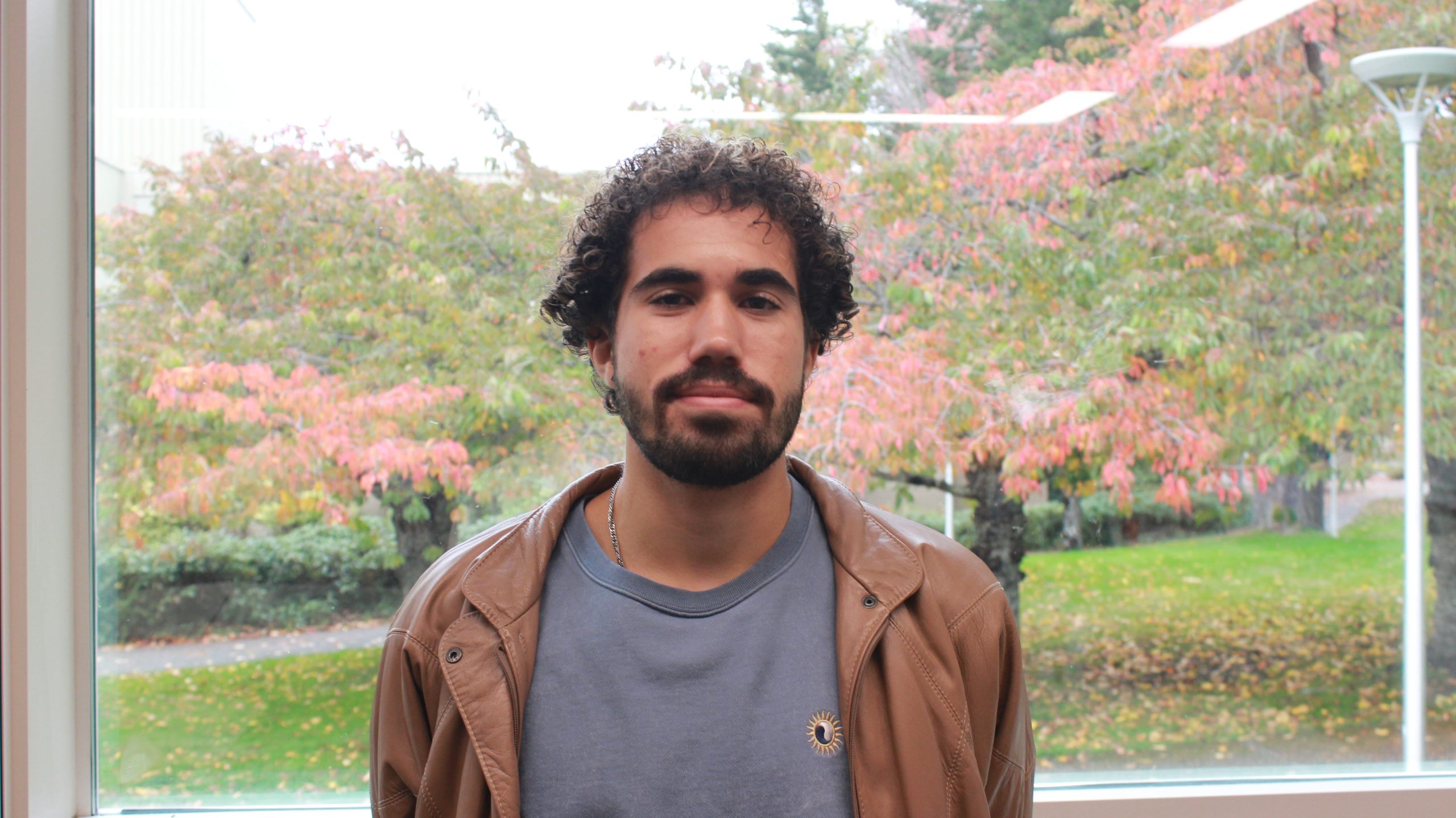
Alex, photo by Cooper Anderson
“All that we can do is live in the present and do what we can in this moment,” said a student named Alex. “It is going to be better than it is now if you put in whatever effort you can as your own person.”
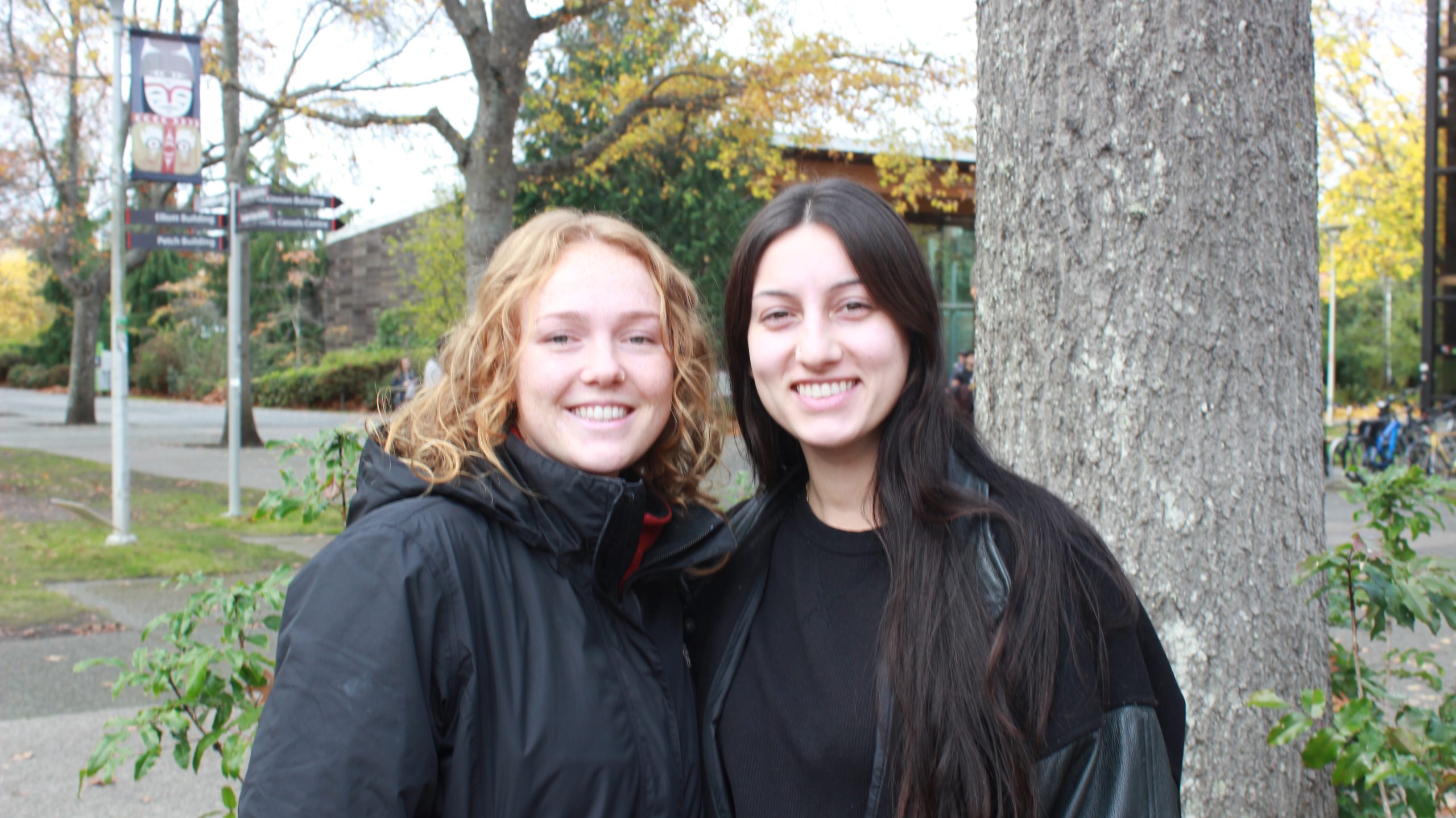
Becca and Annie, photo by Cooper Anderson
“It kinda just stresses me out,” said Becca, another student. “I try to just stretch and relax and do yoga — do what I can.”
“The little acts of anything you do in your community, [whether] that is going for a walk, appreciating something, picking up a piece of garbage,” said UVic student Annie, “alleviate a piece of stress.”
The majority of students said that they feel better when they are outdoors.
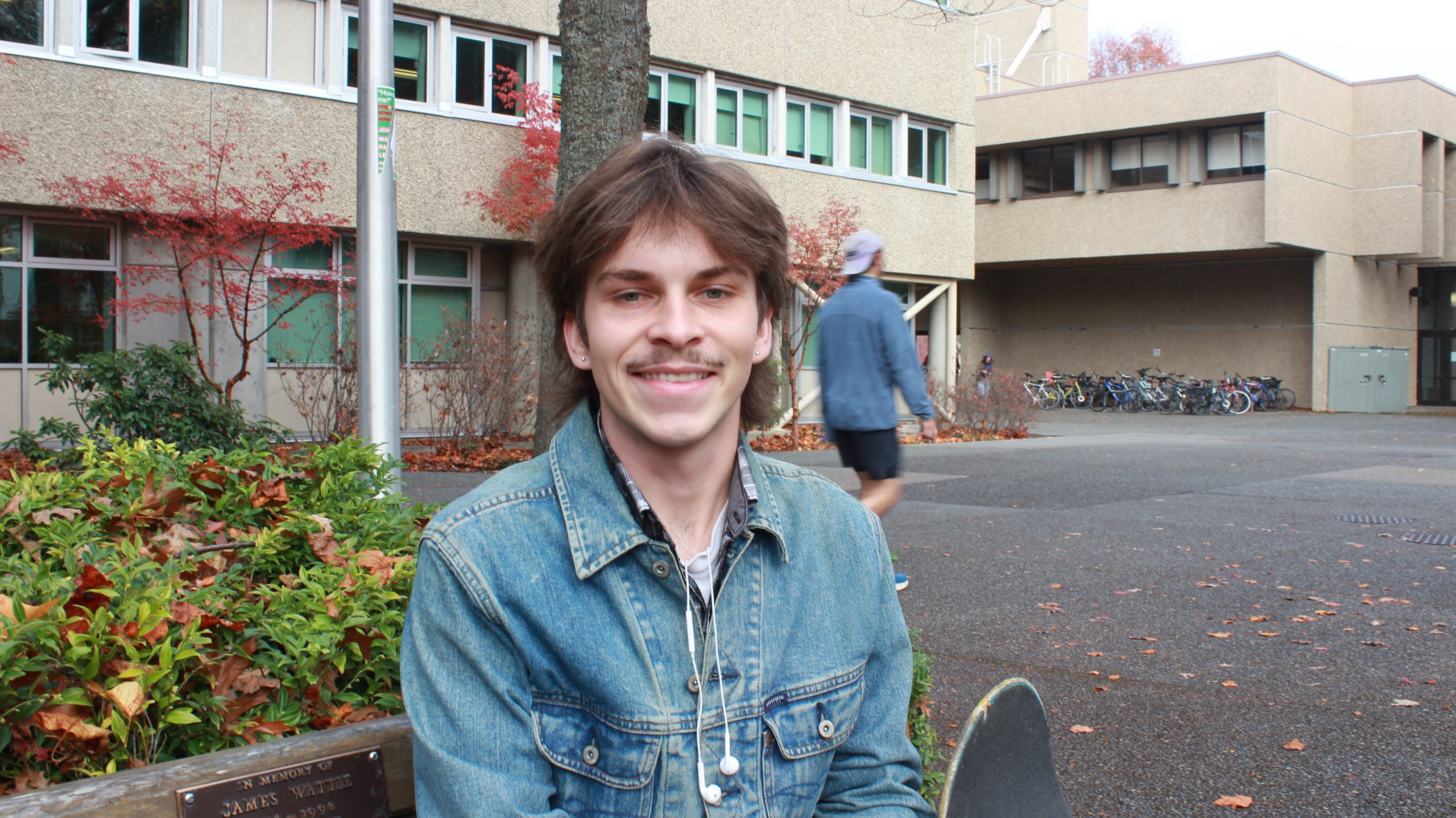
Gabe, photo by Cooper Anderson
“I like going outside in nature and appreciating what we have,” said Gabe, another UVic student, “and looking into the future and trying to find ways [to] negate and mitigate climate change.”
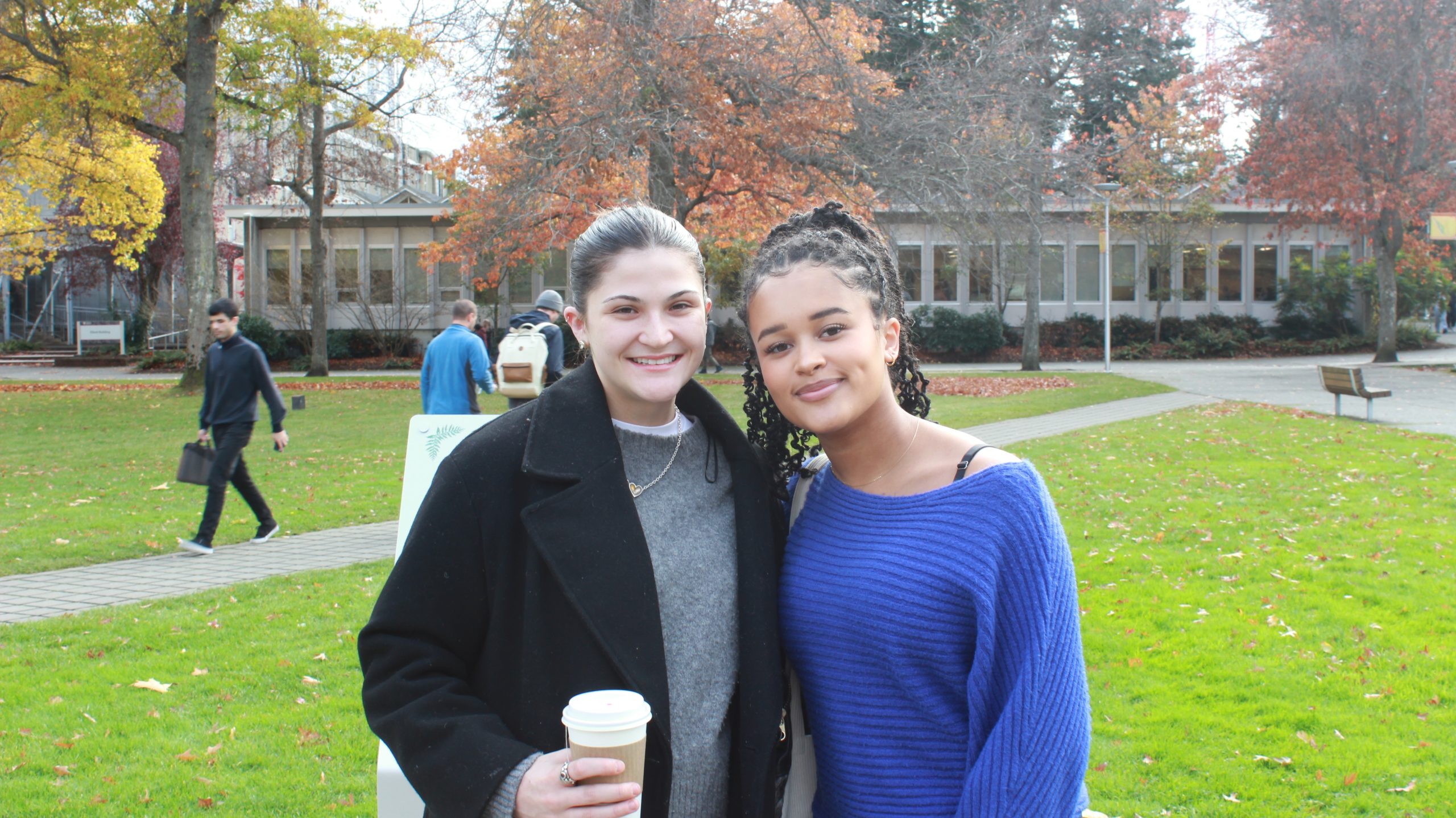
Shay and Isabella, photo by Cooper Anderson
“I go on a walk and put myself into nature so I feel connected again and appreciate what I have,” said Isabella, “so I don’t lay in bed and go on Instagram reels and be depressed about it.”
“I’m kind of the same,” said student Shay. “But I also like to have conversations with people about it, so that I don’t feel that I’m alone.”
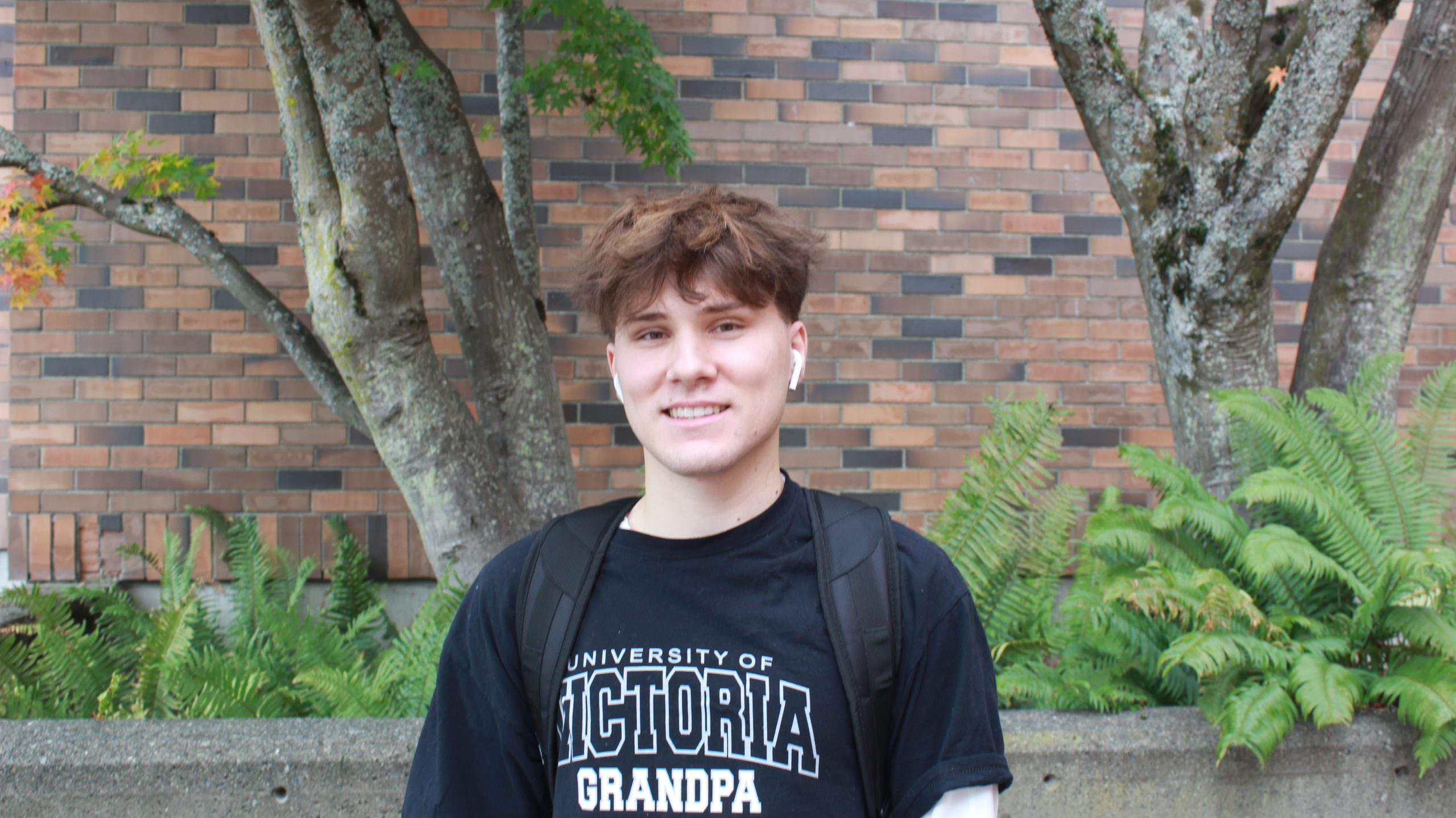
Ben, photo by Cooper Anderson
Many UVic students also emphasized the importance of community to cope with climate doom. “I try to keep in my support system with my friends, and get reassurance from them that I’m going through the same thing,” said Ben, an anthropology student.
Combating the apathy and hopelessness of climate doom is important for the future of humanity, and UVic students all have different mechanisms to cope. It is important to remember that sadness and stress won’t be the end of humanity, but inaction could.
“If our priority is going to be in investing in our future,” said Alex, “then we have to act on that right now.”







